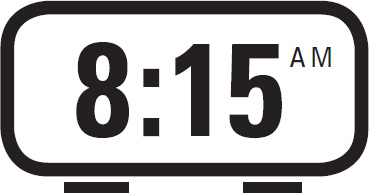

We don’t measure ourselves in absolutes. From wealth to happiness to success to the feeling of fulfillment at the end of a long day, we measure ourselves against our expectations. It’s like the stock market: it may be not a company’s earnings that drive its stock price but how these earnings compare to forecasts. You can see it in customer service too. A classic 1993 article in the Journal of Marketing Research notes that a customer’s perception of customer service is “a function of a customer’s prior expectations of what will and what should transpire during a service encounter.” If customers expect that their call will probably be dropped, they will be happy just to reach someone. If customers expect that the service representative will come to their house to clean the bathroom floor, even a no-questions-asked product return policy won’t be good enough.
And let’s look at people who lose seven pounds on a weight-loss program. A 1997 study showed that if people were told they would lose five pounds, they were overjoyed to lose seven, and if they were told they would lose ten pounds, they were disappointed. Finally, in terms of “subjective well-being”—how people report feeling about their lot in life—it all depends on what they expect, so much so that people in China have historically reported the same subjective well-being as people in the United States. This is despite a median household income in the United States of $84,300 and in China of $10,220 (2009 numbers from Forbes), and an average 12 years of schooling in the United States and only 6.4 years in China. In the United States, we just expect more—and we’re dissatisfied when we don’t get it. Due to expectations, average life satisfaction is consistently measured as being higher in India than it is in Japan.
Okay, okay, just one more example. Imagine your favorite sports team loses a home game. How do you feel about it? Well, UC San Diego economist Gordon Dahl shows that it matters whether your team was favored or not. What was the expected outcome? If the home team is an underdog and then loses, it’s no big deal. But when a favored home team loses, Dahl showed there is a spike in the city’s rate of domestic violence. When a sports team doesn’t live up to its expectations, fans get mad in a visceral and ugly way.
What this means is that this morning and every morning, you have the opportunity to set expectations for your day that will affect whether you feel good or bad about it this evening. But it’s tricky—you don’t want to lower your expectations just so that you can be pleasantly surprised. Lowering your expectations may result in lowered results. For example, expecting to earn a median household income of $84,300 and complete twelve years of school may help us actually achieve these things. It may be that expecting good customer service means that you will receive good customer service. And if you expect a C minus, you may be chuffed with your C plus, but it still ain’t gonna get you into Harvard.
So you’re walking a tightrope here, with alligators on both sides of the river below. Expect less and you may get less. But if you expect too much, you’re setting yourself up for disappointment.
The solution is realism. If you set realistic expectations and then fail to meet them, maybe the disappointment will motivate you to do better next time. And when you exceed these expectations, you can still be pleasantly surprised. Will you eat only one unhealthy snack today? Will you run three miles without kidding yourself that you’ll run ten? Will you spend fifteen minutes talking on the phone with your mother? Being realistic lets you succeed as much as you fail, earning the pleasure of overperforming while keeping the motivation of sometimes missing your goals.
So what happens when you set realistic expectations and then bad luck makes you fall short? I mean, that happens, right? And there’s no need to be disappointed when a bad result really, truly isn’t your fault. One solution is to set your realistic expectations for process and not product. If you expect to try your best, you can still be pleased when bad luck makes you fail. Or if you expect to work efficiently, you can still go to bed successful even if a couple of tasks remain in your in-box. This goes for your expectations of others as well. For example, studies show that if you praise a child’s effort and not innate qualities like intelligence, the child will be more likely to work hard toward goals instead of depending on (questionable) smartness to carry the day. At the end of the day, recognizing and rewarding these elements of process will help you succeed more often when it comes to product.